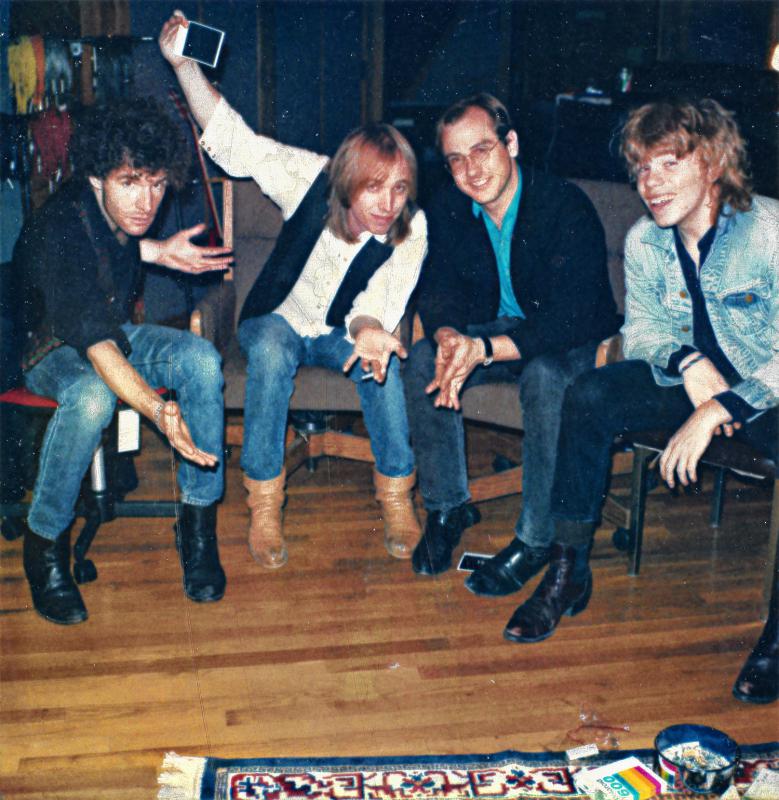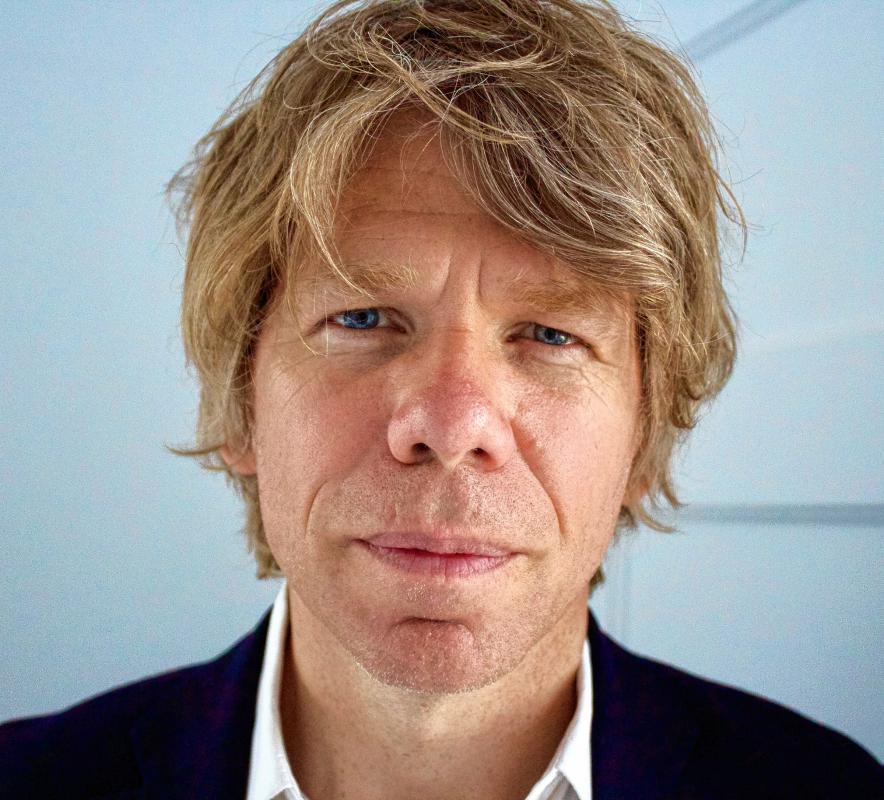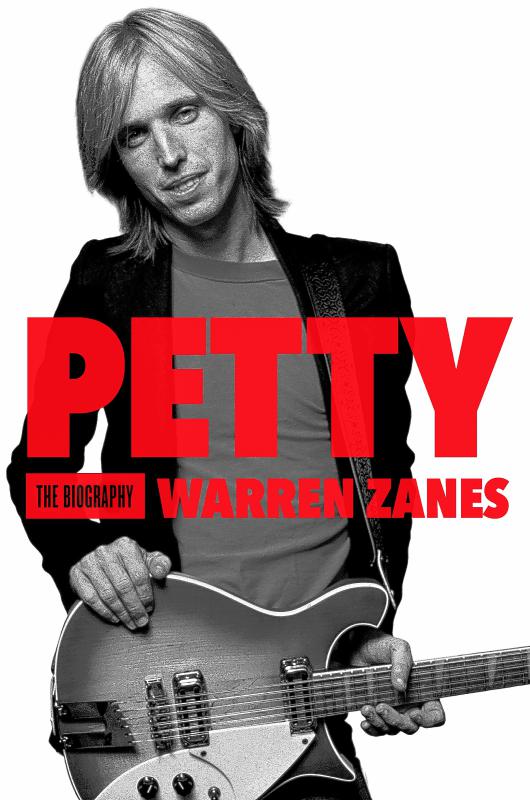We’re not sure, but there probably haven’t been too many Concord guys in the history of the world who have played in a successful rock band, toured with Rock and Roll Hall of Famer Tom Petty, earned a Ph.D. and published several books.
But we know of at least one: Warren Zanes.
Zanes played guitar for the Del Fuegos in the ’80s and is the author of Petty: The Biography, which goes on sale Nov. 10. He’ll be at Gibson’s Bookstore the following day to talk about the book. He may even sign a copy or two if you’re lucky enough.
We got the chance to catch up with him last week to talk a little about how he got to where he is now from humble beginnings in little old Concord.
And so as not to steal the thunder from Gibson’s, we won’t get into details of the book that much. You’ll have to head to Gibson’s to hear that.
So first of all, what’s your tie to Concord?
Well I was born in Exeter, but my first moment of consciousness was Concord. I don’t know why my mother had babies in Exeter, but she did. My mom still lives in Concord, and I was there until I went away to boarding school at 15. I went to Phillips Andover Academy, and mom’s deal was, if you can get a scholarship, you can go. And I was so taken with the wider world I met at that school. I was at the bottom of my class most of the time – I had a lot of strengths in extracurriculars . . . Now I live in Montclair, N.J., and work in Manhattan. Montclair is about 12 miles from the Lincoln Tunnel, and on a good day that’s a 35-minute ride. I’ve got two boys who are 11 and 13, and they love their grandmother. So we do get back (to Concord to visit).
Your Tom Petty biography comes out Nov. 10 and you’re doing an event at Gibson’s on the 11th. Is Concord the first place you’ll launch this book? And why Concord?
On the 10th, when the book comes out, there’s a party in Manhattan. But this is the first true book event, in Concord. I said (to my publicity people), we gotta do this one for my mother. And when you put it like that, nobody really asks any questions.
What have you written before this?
I did a coffee table book, but I was more of an editor. I also did a coffee table book a little wordier in nature on the history of Warner Bros. records. Then I wrote a book in the 33 1/3 series on Dusty Springfield’s Dusty in Memphis. The 33 1/3 series has been around 10 years and I had the first one in that series. They’re short books – think of them as extended essays. Each book is about an album, and they took on this cult life of their own. Competition for submissions is really amazing. They announce when it begins, they announce the deadlines and they get hundreds of people writing proposals.
That’s actually how the second chapter of my relationship with Tom Petty unfolded. He read it and liked it, and asked to go out to dinner in L.A. When I finally had the dinner, he said, “I read that book twice and wrote a song inspired by it.” I was pretty long out of the music business at that time and had just gotten my Ph.D., so to have a major rock star write a song about your stuff . . .
The song’s called “Down South.” A lot of people think they know the South pretty well who have never been there. I was looking into ideas related to that and Petty was interested. He’s a child of the South. He’s done a few records where he looks at his American South. It really showed me, this guy’s a reader.
As a book, it was a little bit of an oddball book . . . It didn’t sell a lot of copies. It’s a fairly indie affair, so you don’t expect bestseller lists. But three people really reached out to say I like this book a lot: Tom Petty, Jerry Wexler – one of the big guys behind Atlantic Records, ordered 150 copies – and Diana Ross. She was in London and picked up the book and she wanted to talk about writing, so we did. It was an interesting experience, and it reminded me, you can look at a book in terms of sales or in terms of how it connects you to the world.
You mentioned the “second chapter” of your relationship with Petty. How did the first chapter begin?
We first met when we were playing a three-night run at the Roxy in L.A. on the Sunset Strip. Every night on the stage we’d say we really want to meet Tom Petty – to the audience. A woman in the audience once said, “I know Tom.”
‘Tell him we’d love to meet him, we’re his biggest fans’ (I replied). She came on the second night. After the last night, we thought he’d come and he didn’t, but he called at 2 a.m. The next night we went to his house. After that, he came and sang a song on our third record and then he brought us on a summer tour. I think the tour was ’86. It was the Rock ’n’ Roll Caravan Tour.
Funniest story from on the road?
The way we were living that lifestyle, there wasn’t a lot of funny. We were laughing a lot, but I was on the cusp of leaving the music business. I was not a satisfied soul. There’s friction between me and my brother (Dan Zanes) – I wanted a part of the creative pie that I never got with the Del Fuegos. I don’t think of it as much as a happy time.
We also just released a third record and it didn’t do well – it was kind of the beginning of the end for us. Things were gonna start slipping down for us. It’s honest stories. I do know this: I would go out and watch Tom Petty and the Heartbreakers play every night, and it was a three-month tour and I never got tired of it. Tom was really generous to us, really nice personally. If time travel made it possible for you to go back and talk to the me of that time and said, hey, one day you’re gonna write his biography, I just had no frame of seeing that. I just came out of high school, joined a rock ’n’ roll band, went to the bar, got my glass filled, and tried to pick up every girl who crossed my path.
What’s your relationship with Petty like now?
This went over the course of years, and we spent a lot of time sitting on the couch together (doing interviews for the book). I knew him back then but I was a reckless kid in an opening band. The second chapter, that’s when I really felt I got to know him. It was remarkable because this was an artist I grew up with. It was remarkable to me that I was sitting there talking on such a deep level with so much regularity. I’d drive away from the interview session and just be struck at the mere fact that it happened. We’ve been in regular touch for years now.
How did you end up writing his biography?
It was an interesting arrangement. I’d done that other coffee table book for him, I wrote minor notes for his live anthology, I wrote notes for the DVD release of his movie. I was here and there doing projects for them. Along the course of that he said, “Would you be interested in writing a bio?” And I said very much. He said, “I want it to be your book, not mine. I don’t want to co-author it. I don’t want it to be authorized. I will cooperate fully and get you whoever you need to get to. I’ll help, but it’s yours.”
That interested me because initially a lot of people asked, “What’s the problem with authorized?” When I see authorized on a book, I know it’s a whitewashed account. It makes sure that the writer is not saying anything that makes him (the subject) uncomfortable. He (Petty) opened up in ways that he hasn’t in the past. I’m not gonna take credit for that – he did it.
There was stuff that made him uncomfortable, but as promised, he did not tell me to take it out. That’s what brings life to this book . . . The biggest thing was just the access he gave me. He never, never, when I asked a question, said, “Next.” He answered them all. I’ve done a lot of artist interviews, and that doesn’t always happen.
How did you get into music in the first place?
The day that I graduated by the skin of my teeth, I joined my brother’s band, the Del Fuegos. They started at Oberlin College and they had these monthlong kind of winter semesters. The band went to stay at my mother’s house in Concord, and they played some shows around just as a three-piece, and they just didn’t go back to college, and that was it. They did a significant chunk of time in Concord. One memorable gig was Hawaiian Island. I was still in my 11th-12th grade years when they were doing that, then my brother asked me to join when I was in my senior year. I managed to graduate and went right into the Del Fuegos and signed a deal about six months later. The next years were spent on the road, in recording studios and in trouble.
How did you get into writing?
When I quit the Del Fuegos, it was probably like a year later that I started taking my first college classes. I went from taking two classes, thinking that’s it, and ended up getting a Ph.D. – bachelor’s, two master’s and Ph.D.
Besides writing, what do you do with your time these days?
My main job is I’m the executive director of Steven Van Zandt’s foundation – he’s a member of Bruce Springsteen’s E Street Band. We met when I was still working at the Rock and Roll Hall of Fame in Cleveland. Steven had an idea for a history of rock ’n’ roll high school program. That is my day job.
Do you plan on continuing to write books? Are you writing anything right now?
I’m at work planning my next book, but it’s not at a point where I can say a whole lot. These things are volatile, so I don’t want to curse a project that isn’t yet realized!
What’s your relationship with your brother like now? Do you guys ever collaborate these days?
We’ve gotten as far as being friends again (with a chuckle), so we don’t push it. We re-formed the band a few years back and did a tour and a little bit of recording. We’ve got our history of being brothers in conflict, and being brothers not in conflict. Lately it’s been more of the latter, I’m happy to report. We’ve had our times of strife. He’s older in human years, but in terms of mental and emotional maturity, I’m probably 10 years his senior (another chuckle).
Are you more into nonficiton/bios, or would you try fiction? Would you be able to write a bio about anyone else?
I think my next book will still be focused on music, and in all likelihood it will be a bio. If I can find a subject that inspires me and who is willing to give me what I need to make a story work, then I’ll be set. It’s a matter of finding that subject. There are some interesting characters lurking about the music business who are worthy of books. We’ll see who opens their doors!
How do you go about getting published?
I have an agent who is a great ally in this process, who has taught me most of what I know about the process. My job is to write a compelling proposal that he can then take to potential publishers. But my end of it, writing that proposal, can take a pretty significant chunk of time. I also have a job I have to do, that I want to do, so it’s a matter of finding balance. And, of course, I’m a dad.
Finally, what was your biggest challenge in writing this book?
Not eating all my children’s snacks when I’m pushing through a challenging moment in the process. I gained a few unwanted pounds just trying to get this Petty book to the finish line!
To hear more about Zanes – from the man himself – head over to Gibson’s Bookstore on Nov. 11 at 5:30 p.m. For more information, go to gibsonsbookstore.com or Warren-Zanes.com.












